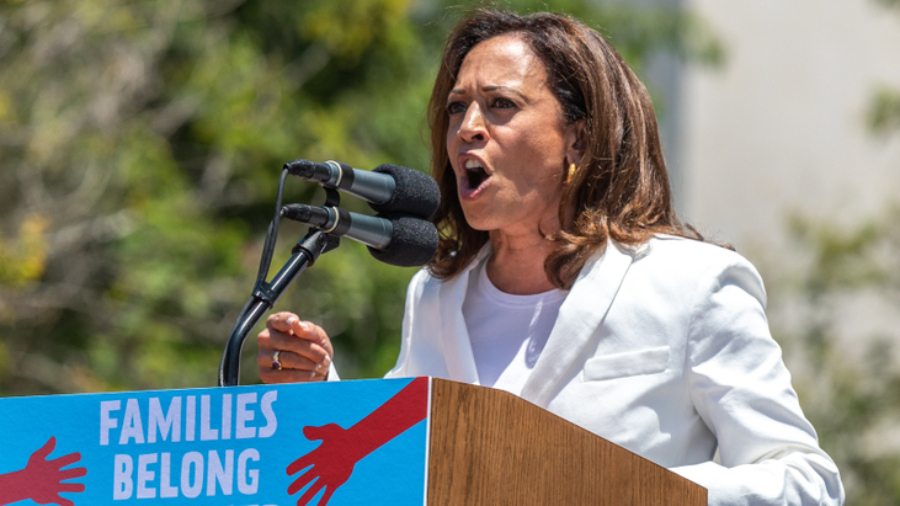Record, platform, and history do matter in the Democratic primary, and pointing out the differences does not harm the candidates, it strengthens the team.
20 candidates have declared their run for the Democratic Party nomination for the 2020 presidential election. That’s a massive list filled with candidates from different backgrounds, different experiences, different platforms, and different visions for the future. Already, conversations and social media comment boards are filled with opinions on who the front-runner is, who has the ability to sustain a run, or who can unite the party. Also included in these discussions (arguments), is why one should never criticize another candidate by bringing up their record or any other unfriendly information for fear that Democrats will weaken their own eventual nominee. Comments such as, “Democrats eat their young again,” or “here we go again with Democrats badly damaging each other -save it for the general election!” Not only is this idea unfair, but it is misguided and will lead to a flawed nominee rather than a strengthened team.
In 2016, there were two candidates for the Democratic nomination, Hillary Clinton and Bernie Sanders. The argument that Sanders damaged Clinton and her ability to win in the general election has been proven false by many metrics. Hillary Clinton, largely, ran a campaign for the presidency that lacked substance and a clear vision. Mostly, she ran on a platform of ‘I’m not Trump.’ She failed to energize voters and create a high voter turnout, particularly among young people. Verified exit polling numbers show that the 18-29 year old demographic only created 13% of the electorate, with roughly 29% of the electorate coming from the demographics of 30-49 years old, 50-64 and 65+, however, all four of these demographics represent about the same population. Further, Bernie Sanders could have 1 created a contested convention and required super delegates to cast the final nominating votes, which many of his supporters probably would have liked considering the ethically questionable things the DNC did during the primary season, but he stood on stage and waited for five minutes for the cheering to subside before conceding the nomination to Hillary Clinton. He then campaigned on her behalf for the rest of the election, across the country and using his extensive network to urge his supporters to get out and cast a ballot for Hillary Clinton for president. During the 2016 primary season, there were no negative ads run by Hillary Clinton against Bernie Sanders, or vice versa. Neither of the Democratic candidates ever told their supporters to vote against the other should they win the nomination, or not to vote at all. But, what they did do is to expose the Democratic electorate to truths about each others history, past voting records and what they would do differently. The impetus was on the nominee to excite the Democratic base, get out the vote and create a platform that people would want to vote for. As has been well documented, Clinton failed to do this by running a moderate campaign with few specifics except that she would be better than Donald Trump. She did not see what was so exciting for much of the electorate in a candidate like Sanders or, in a much different way, Trump, and did not speak to these people about what they needed from the government. She avoided states like Wisconsin, Minnesota, and Michigan because they have been reliably Democratic – and she lost 2⁄3 of them. She did not create a campaign that felt authentic to Americans who don’t believe politicians are authentic, and she lost because of it.
Bernie Sanders offered Hillary Clinton an opportunity to be in touch with the electorate, to answer for a voting record that many Americans viewed as questionable, and to create a platform for the general election that would appeal to further voting blocs than what Democrats have traditionally enjoyed. He offered her a stronger campaign, but she did not capitalize on it – this does not mean he harmed her campaign. Similarly, in the current primary season, the Democrats and their supporters, are going to expose the history, experience, voting records, policy stances and many other things about each other. While this absolutely must remain civil and rooted in fact, and there should be no negative ads run against each other, the sheer breadth of candidates is going to open additional voting blocs to the eventual nominee, should they have the vision and insight to see it and act on it. By listening to the voters, who they donate to, who they show up for at rallies, what policies they like and don’t like, and being able to speak to those voters in the general election, the nominee will be strengthened. By having their ‘dirty laundry’ aired out in the primary, they will have an opportunity to formulate an answer for it, evolve on unpopular stances, and adapt their platform to reach more voters. If a fair, honest and open election is held, no Democratic voter should be able to say the nominee does not represent them when all is said and done, and a formidable candidate will represent the team in the general election.
1 “An examination of the 2016 electorate, based on validated voters ….” 9 Aug. 2018, https://www.people-press.org/2018/08/09/an-examination-of-the-2016-electorate-based-on-validated-vote rs/. Accessed 29 Apr. 2019.
This article was originally published on 1 May 2019.

